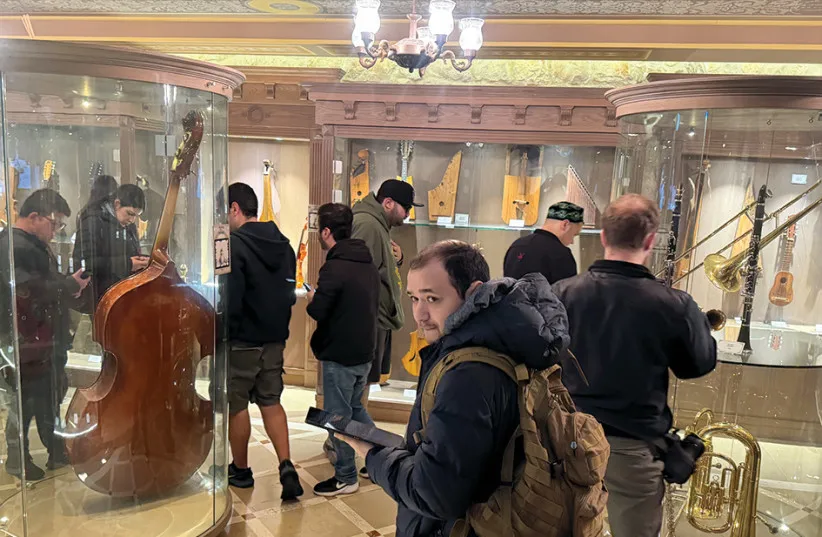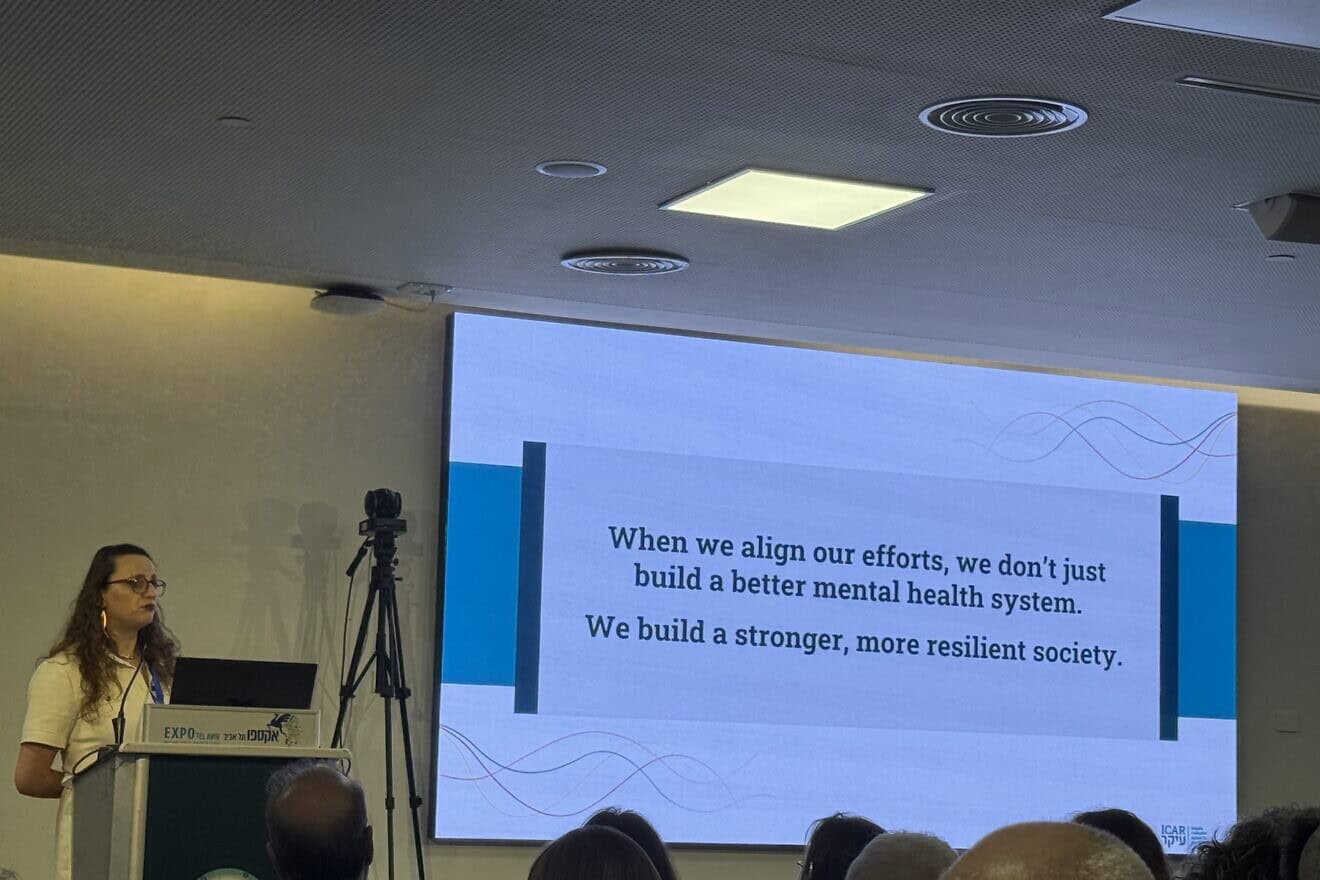Originally appeared in Jerusalem Post, www.jpost.org, Feb 20, 2026, IN JERUSALEM magazine.
When the Birthright group I was leading, comprised of 23 people with autism, found ourselves unable to leave Jerusalem for the Dead Sea and Ein Gedi because the roads were closed due to rain, we had to find an alternative plan – FAST! And it had to be in Jerusalem so we would stay on track for our lunch reservations at Focaccia Bar and doing community service at Colel Chabad’s Pantry Packers. With such a busy day ahead, the chosen activity would have to start in half an hour!
The tour guide and I got off the bus when we got the last-minute news of the road closure, took out our phones, put on our thinking caps, and began to brainstorm from the limited number of indoor options that could accommodate a fairly large group at a moment’s notice. We took a chance and called a place we hadn’t known about: The Hebrew Music Museum.
Within 30 minutes, our group, which included a participant with quadriplegia who required a fully accessible space, were exploring and sampling instruments which most of us had never heard of from various countries and periods of history. This gem of a museum, in the Nahalat Shiva neighborhood at Kikar Hamusica (Music Square), had a talented musician and guide on hand, Roi Baruch, who could demonstrate the instruments and explain them in English. Available languages for tours also include Spanish, Hebrew, French, and Russian – but not usually at the drop of a hat like ours.
Our tour included explanations, stories, and demonstrations – and, perhaps most importantly, a chance for our Birthright participants to try out the instruments. It is also possible to tour the museum’s seven rooms in a most impressive architectural structure using audio-visual technology with “Grandpa Levi,” its animated guide.
Each room presented a different region or culture: Central Asia; Morocco-Andalusia; Europe-Ashkenaz; Africa, Ethiopia, and Yemen; the Balkan Peninsula; Iraq, Syria, and Egypt; and ancient Hebrew nations. The latter includes instruments of ancient times and a virtual reality tour of the instruments used by the Levites in the Temple.

It was my first time experiencing virtual reality, and I was mesmerized by the Holy Temple – and its sacrifices – coming alive. I should have listened to Baruch when he suggested that I take a seat. The 3-D experience was so realistic, that I felt unstable standing while watching the action unfold in front of me.
School groups and most casual visitors will be so taken by the instruments and the Temple that they may not stop to contemplate how this privately funded museum got here and how it fits into the larger gem of a “musical square” in the heart of Jerusalem. Museum founder Laurent Levy, a lifelong lover of music – and CEO of the successful Optical Center chain – has reported that he draws inspiration from many places, including the Temple Mount in Jerusalem.
“The idea becomes tangible, and I conceptualize innovative concepts to the last detail,” Levy said. “I instill in each of these works a strong desire that every user can see the beauty and hear the good, and hence make the world a better place.” He added, “I am also inspired from study of the Torah, the Talmud, the Kabbalah, and the biblical prophets. I consider every human being a source of inspiration and try to learn from everyone, regardless of age, culture, or nationality.”

Levy made aliyah in 2005, established an online optical center in 2006, and opened his first Israel Optical Center in Jerusalem in 2007. A year later, the center also included a hearing aid department.
Music Square becomes cultural hub
The entrepreneurial, creative Levy next launched a Jerusalem apartment rental website, wrote a book titled The Seven Keys to Success, and in 2014 ventured into the Jerusalem music sphere. He opened Kikar Hamusica that year, followed by the Blue Hall Music pub and the Kinor b’Kikar (Violin in the Square) restaurant. In 2016, he opened the Hebrew Music Museum and has since established his sixth restaurant in Music Square.
Thanks to Levy, visitors of all ages to Jerusalem have ample opportunities to experience music – and get a great pair of glasses! Our Birthright group is appreciative that Levy and the talented staff of the museum truly helped turn our rainy-day disappointment into a morning of fun and engagement through music. I look forward to bringing future groups in nicer weather to experience daily live performances in Music Square of every genre – from jazz and samba to rock and roll, reggae, and klezmer.
Live music, interesting instruments, and flavorful food – all in one place, all provided by one enterprising guy!
Hebrew Music Museum
10 Yoel Moshe Salomon St.
Tel: (02) 540-6505
Sun.-Thurs., 10 a.m.-7 p.m.
Fri., 10 a.m.-2 p.m.
NIS 60 adults. NIS 45 children
and senior citizens.
NIS 40 students. NIS 32 soldiers and people with disabilities.
hebrewmusicmuseum.com/








